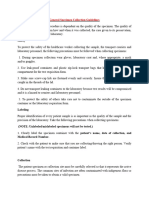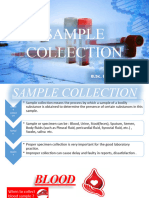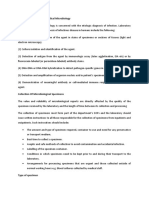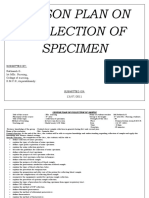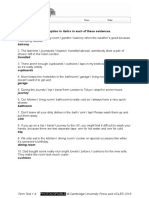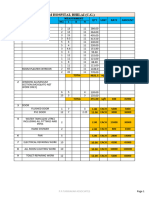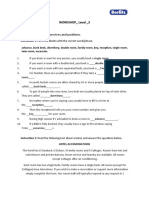0% found this document useful (0 votes)
8 views17 pagesMls 201 2025 Sample Collection
The document outlines the process and importance of specimen collection in medical laboratories, detailing the types of samples collected, the roles of healthcare professionals, and the necessary training for proper collection techniques. It emphasizes the significance of accurate specimen collection for timely laboratory results and patient diagnosis. Additionally, it provides guidelines for cleaning and maintaining laboratory glassware to ensure reliability in experimental work.
Uploaded by
preciousopeyemi2006Copyright
© © All Rights Reserved
We take content rights seriously. If you suspect this is your content, claim it here.
Available Formats
Download as DOCX, PDF, TXT or read online on Scribd
0% found this document useful (0 votes)
8 views17 pagesMls 201 2025 Sample Collection
The document outlines the process and importance of specimen collection in medical laboratories, detailing the types of samples collected, the roles of healthcare professionals, and the necessary training for proper collection techniques. It emphasizes the significance of accurate specimen collection for timely laboratory results and patient diagnosis. Additionally, it provides guidelines for cleaning and maintaining laboratory glassware to ensure reliability in experimental work.
Uploaded by
preciousopeyemi2006Copyright
© © All Rights Reserved
We take content rights seriously. If you suspect this is your content, claim it here.
Available Formats
Download as DOCX, PDF, TXT or read online on Scribd
/ 17






